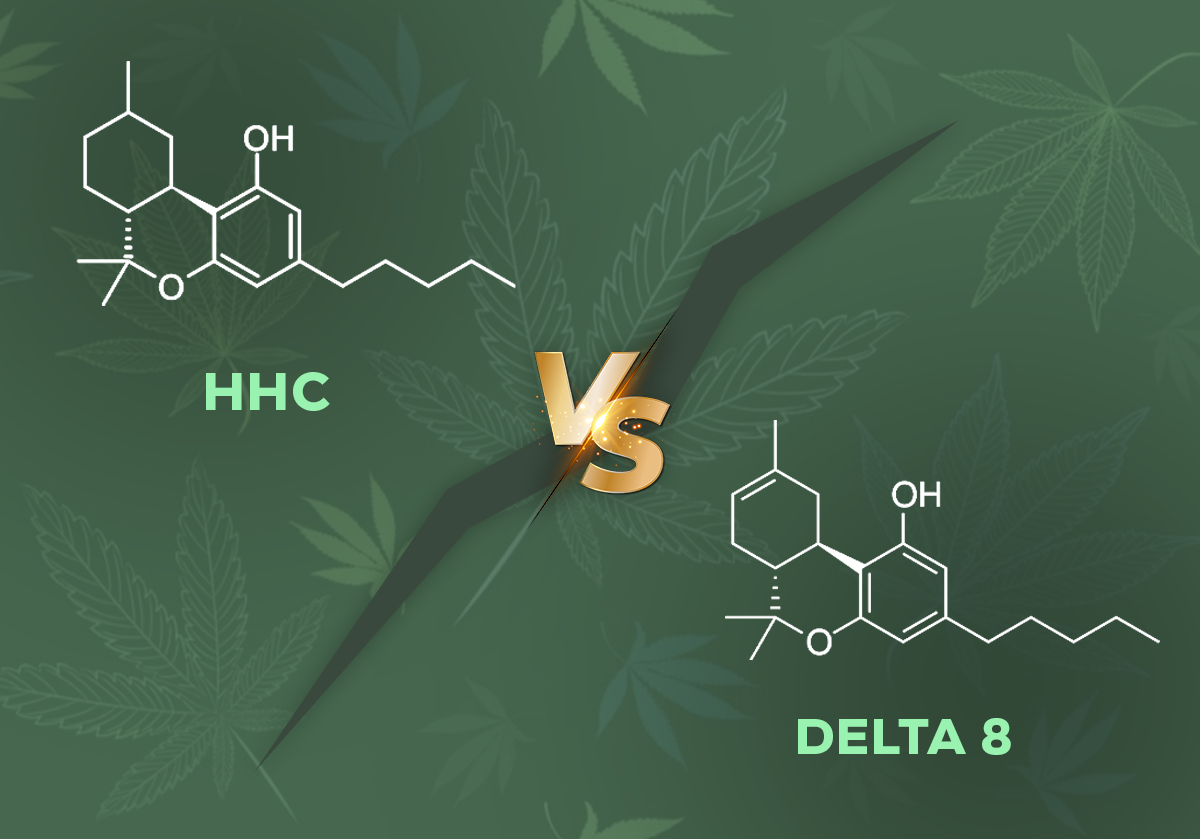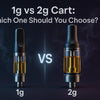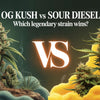HHC vs. Delta 8: Key Differences Explained

HHC and Delta 8 are both really famous, but they have some differences. So, before buying any of them, we need to know what they really are. This blog will help you do so! One common thing about them is they both come from the plants of marijuana. But that does not mean that they are not the same. Let us break it in a way that is very easy to understand.
What is HHC?
HHC, also known as hexahydrocanabinol is just a needle in the bush. There is much more to it! It's a kind of material that comes from the cannabis plant. Think of it like a special component - HHC. It's been some time, but now more people are talking about it. The best part about this is that it makes you feel light and cool. Some people say that they feel less stressed.
What is Delta 8?
The delta 8 is another type of material from the cannabis plant. Its full name is Delta 8 THC, but most people call it only Delta 8. It is like a type of THC that you know from marijuana regularly. Delta 8 is popular because it does not feel as "high" as a regular THC. It comes in many different forms, such as gums, vapes, and even slightly disposable vapor pen. These different forms make it easy for people to find.
How Do They Feel?
When you use HHC, it usually makes you feel very light. It is like a soft hit to the throat that helps you to quit stress. Some people say that it is great when they feel stressed or worried.
On the other hand, Delta 8 products can make you a little more aware and concentrated. It's like a gentle boost that helps you be aware. It's not as strong as regular THC, so it is easier to handle. Many people like Delta 8, which gives them a nice, lighter feeling without being too intense.
How Strong are They?
HHC Delta is usually a little stronger than 8. This means that a little HHC Can move too much. If you have HHC So if you are new, it is a good idea to start with a bit and see how you feel.
Delta 8 is a little lighter. It is perfect for people who want to try something that may not overcome them. Because it is not so strong, it is easier to control how much you use.
How Long Do They Last?
HHC Usually lasts a little longer. You may experience the effects of up to several hours, which can be great if you want to help you with something during the day or night.
Delta 8 usually does not last long. The effects can last for a few hours, which can be perfect if you only need a quick hit. The exact duration depends on how you use it. For example, using Delta 8 THC vapes or a Delta 8 vape pen can deliver quick effects, whereas Delta 8 gummies take longer to kick in after you eat them.
How Do You Use It?
Both HHC and Delta come in different forms, so you have many choices. HHC is Often found in things like gems, tinctures, and vape cartridges. These different forms make it easy to find something that matches your lifestyle.
Delta 8 also comes in many forms. You can find Delta 8 in things like Delta 8 vapes, cartridges, gums, and a little disposable vapor pen. Each form has its own benefits. For example, the use of Delta 8 Vape Pen can give you a quick and easy effect. Delta 8 oily eating is a great option if you want something that is easy to get on a trip.
Are They Legal?
HHC and the Delta 8 come from hemp, which is legal in the United States. But, the laws may be different in each state. So what you need to do is make sure you find the rules where you live. Some states have specific rules for using HHC and Delta 8, so you want to make sure you are following the law.
Which One is Right for You?
HHC and the choice between Delta 8 depends on what you want. If you want something strong that can help you relax and calm down, HHC can be a good choice. It is best to help with stress and anxiety, and it can last for several hours.
If you want something light that can help you stay awake and focus better, the Delta 8 THC gummies can be fun. Delta 8 is suitable for vapers who are just starting. It is easier to control the effects. With many forms, such as carts, gums, and Delta 8 disposable vapes, you can find something that works for you.
Final Words
Both HHC and Delta 8 can help you lighter, focus and lift. The key is to understand the differences so you can choose what is right for you. Even if you have HHC, or if you want to try Delta 8 carts, start with a small amount and see what you think. Always remember to examine the law in your field so that you are using it safely and legally.
So, there you have it! Now you have a detailed guide on what HHC is, and you also know the main differences between Delta 8. Happy Exploring!
FAQs
Q1: How do HHC and Delta 8 THC differ in terms of effects?
A1: Delta 8 THC gives a calm, mild high. It’s relaxing and easy to handle. HHC is a bit stronger. It feels like a mix of calm and a light buzz.
Q2: Can HHC and Delta 8 THC be used together?
A2: Yes, you can use them together. Some people mix them for a balanced feel. Start with small amounts to see how it works for you.
Q3: What is the difference in taste or smell between HHC and Delta 8 THC products?
A3: Delta 8 THC tastes earthy. HHC can smell a little sweeter. The difference is small and depends on the product.
Q4: Are there any specific benefits of choosing HHC over Delta 8 THC, or vice versa?
A4: Delta 8 THC is milder and good for beginners. HHC is stronger and lasts longer. Pick Delta 8 for relaxation. Pick HHC for a stronger feel.
Q5: Are HHC and Delta 8 THC products tested for quality and safety?
A5: Good brands test their products. Look for lab results online. These tests check if the product is clean and safe. Always buy from trusted sellers.





